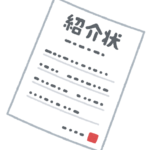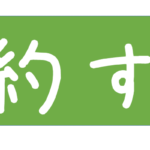GDEVS – [SOTR073] レコードの検索 – 73 番目のエピソード – ビデオ(原文:GDEVS – [SOTR073] SEARCH OFF THE RECORD – 73RD EPISODE – VIDEO)
グーグル翻訳)
[00:00:10:17] – John
こんにちは。検索オフ ザ レコの別のエピソードへようこそ。このポッドキャストは、Google 検索チームが検索に関するあらゆることについて話し合い、途中で楽しい時間をお届けするポッドキャストです。私の名前はジョンです。今日は、私も所属している Search Relations チームの Lizzi が参加します。こんにちは、リジー。
[00:00:29:06] – リジー
ねえ、ジョン、今日は何について話しましょうか?
[00:00:31:23] – ジョン
古いことについて話します。そこで、人々がポッドキャストに対して、コンテンツの衰退について話すべきだというフィードバックを提出したと聞きました。
[00:00:42:19] – リジ
虫歯のようなもの。何か痛いような感じですか?
[00:00:45:22] – John
コンテンツに感情があるかどうかはわかりません。では、その観点から見ると、誰にも分かりません。
[00:00:52:17] – Lizzi
でも、それはカビの生えたものなので、おそらくそれは私たちの問題です。カビの生えたチーズみたいに。
[00:00:57:15] – ジョンの
カビの生えたチーズ?
[00:00:58:21] – リジー
はい。
[00:01:00:04] – ジョン
それはチーズの腐敗のようなものです。
[00:01:01:06] – Lizzi
いいえ、これが出てきたのを見たことがあります。ポッドキャスト「オフレコ検索」のトピックに関するフィードバック フォームで、誰かがコンテンツの劣化について話すべきだと考えているということだったと思いますが、私は知りませんでした。それが何だったのか、それで調べてみようと思いました。それから、それについて話してもいいかもしれません。
[00:01:16:26] – ジョン
わかりました、クールですね。まあ、誰かがそれが何であるかを知っているのは良いことです。
[00:01:21:27] – Lizzi
そうですね、このエピソードでわかります。
[00:01:23:25] – ジョン
それを見ると、これは既知の用語であるように聞こえましたが、実際に何を意味するのかまったくわからず、おそらくそれが何を意味するのかを解釈しなければならないことに気づいたとき、私は不十分だと感じました名前からという意味です。
[00:01:38:12] – Lizzi
名前から見て、コンテンツが衰退すると言ったときに最初に何が思い浮かびますか?どうなると思いましたか?
[00:01:43:21] – John
わかりませんが、何か科学的なことのように聞こえました。それは放射性崩壊のようなもの、あるいは次のようなものです…
[00:01:51:21] – Lizzi
それは少しネガティブに聞こえるように。ちょっとネガティブですね、はい。そうそう。おそらく内容に何か問題があるような気がします。おそらく腐っているか、経年変化で何かが起こったのでしょう。
[00:02:02:16] – ジョン
ホームページが GeoCities に変わって、突然「これは古い」と感じるようなものだと思いますが、インターネットでは、ホームページが変わるわけではないと思います古いですが、世界の他の地域よりも進化していますよね?
[00:02:19:06] – Lizzi
そうですね、そうですね、そのことへの興味は時間の経過とともに変化するかもしれません。
[00:02:23:12] – ジョン・
クール。
[00:02:24:17] – リジ
しかし、この件について軽く調べてみたところ、SEO の世界におけるコンテンツの衰退とは、検索への関心が低下しているコンテンツのことを指すようです。つまり、Search Console を見ていると、時間の経過とともに CTR が徐々に低下し、人々があなたのものに注目していないことに気づくでしょう。そしてこれは、コンテンツが過去 10 年間で衰退した可能性があることを示しています。わからない。期間は不明。
[00:02:57:08] – ジョン
衰退、衰退、衰退。つまり、9 歳未満であることを確認すれば大丈夫、という感じです。
[00:03:03:08] – リジー
正解です。
[00:03:04:17] – ジョン
わかりました。いいね。これに関して私が時々質問されるのは、それがあなたのウェブサイトが悪いのか、低品質なのか、あるいは本来あるべきほど役に立たないことを意味するのかということだと思います。それから、Google に好まれるようにコンテンツの劣化を修正する必要があるのかといった SEO の質問もあります。私のウェブサイトは本当に良いと思いますか?
[00:03:25:10] – リジー
そうですね、でもそれは本当ですか?たとえば、すべてのページを常に新しい状態にしておく必要がありますか?すべてがそうである必要があるように、私は知りませんが、生後6か月未満ですか?
[00:03:34:17] – ジョン
いいえ、間違いなく違います。私が思うに、主な問題は、人々がこれを直接的な SEO 要素のようなものとして見ているということですが、実際にはもっと戦略的なことだと思います。つまり、自分のサイトを何で知ってもらいたいのか、それは何と一致するのかなどです。人々は探していますか?その情報はまだ正しいのでしょうか?そういうこと。
[00:03:56:23] – Lizzi
わかりました。では、何かが古いからといって、必ずしもそれが悪いというわけではありません。
[00:04:00:04] – ジョン
その通りです。
[00:04:01:20] – Lizzi
あるいは、たとえば、人々はそれを気にしていません。
[00:04:04:02] – ジョン
そうですね。つまり、参考資料を見ると、それは定義上古いものであり、人々がそれについて非常に長い間研究してきたためにそれについて書いたようなものです。なので、古いもののようです。しかし、それはそれが真実でなくなったり、役に立たなくなったりすることを意味するものではありません。
[00:04:23:16] – リジー
わかりました。
[00:04:24:23] – John
それで、実用的な観点から見て、検索開発者向けドキュメントを見てみるのもいいかもしれません。どう思いますか?
[00:04:32:02] – リジ
いいですね。それが最初に頭に浮かんだことの 1 つだったと思います。私の本業は検索セントラル Web サイトの司書であり、それを世話しているようなものだと思っているからです。そして、私が知りたいのは、たとえば、私たちのウェブサイトである Onesie に腐ったチーズの破片が隠れていないかどうか、そしてそれらをどこで見つけて修復するかをどのように考えればよいのか、ということです。保存できるものはありますか、それとも意図したとおりに機能していますか?しかし、これはこのエピソードの良いテストケースのように思えます。
[00:05:07:00] – John
そうですね、一度考えてみますが、おそらくチーズは良い比較ではないでしょう。なぜなら、古いチーズは時には新しいチーズよりも優れているからです。つまり、少し腐ったチーズを持っていると、「これはおいしい」と思うのと同じです。そして、それがひどく腐っていたら、「ああ、遅すぎる」という感じです。それがドキュメントにうまく対応しているかどうかはわかりません。
[00:05:29:15] – リジ
または堆肥。
[00:05:30:22] – ジョン・
コンポスト。わかった。
[00:05:32:04] – Lizzi
そうすれば、次の木か何かに役立つものに変わる可能性があるからです。しかし、そのたとえは良くないかもしれません。
[00:05:39:17] – ジョン
そうですね。 Web ページでそれができるかどうかはわかりません。本当に長い間腐って、突然再び花を咲かせるまで、ただ永遠に保存しておくようなものです。わからない。
[00:05:48:25] – Lizzi
Onesie 内でどのタイプのコンテンツについて話しているかによると思います。私たちのブログには、コンテンツの一部、つまり私たちが持っている最も古いコンテンツが残っていると思います。 2005 年に遡るページもありますが、それらは腐敗しつつあると言えるかもしれません。わからない。人々がこれらのものを探す年齢の限界に達しているのでしょうか?それはコンテンツが劣化したか期限切れになったことを意味するのでしょうか?
[00:06:19:03] – ジョン
それは興味深い点ですね。 2005年。もう約20年になります。それはいいね。 20年間の崩壊。うん。特にブログの投稿やあらゆる種類のニュースや時間に関しては、何と呼ぶのかわかりませんが、時間に関連したコンテンツのように、そのまま保持しておきたいと思われるようなものだと思います。歴史的な参照でも。
[00:06:43:01] – リジー
同意します。研究やアーカイブの観点から、元の発行日を維持したいと考えています。たとえ、何かを発表した後、その内容が更新されるか、通知を入れたいなど、更新したとしても、元のコンテンツはそのまま保持したいと考えています。振り返ったり参照したりする必要がある場合に備えて、それを変更したり新しいものに修復したりするには、それについてさらに言いたいことがたくさんあるなら、新しいブログ投稿として再公開する価値があるでしょう。
[00:07:19:08] – ジョン
そうですね、特にブログ投稿の場合、これは非常に理にかなっていると思います。わかりませんが、2005 年に何かを公開し、それを昨年変更した場合、単にブログ記事を書き直すのはちょっと奇妙に感じられるでしょう。まるで歴史を書き換えているようだ。
[00:07:35:29] – Lizzi
まあ、それも間違いです。たとえば、戻って、Google ウェブマスターやウェブマスター ツールと言っていた箇所をすべて置き換えた場合、ウェブマスター ツールと言っていた箇所をすべて Search Console に置き換えた場合、それは事実として間違っています。
[00:07:49:23] – ジョン
そうですね。
[00:07:52:16] – Lizzi
その時点では Search Console が存在していなかったので。それはウェブマスターツールでした。したがって、「Search Console が Search Console に置き換わります」と言ったとしても、ブランド変更を発表したブログ投稿では意味がありません。つまり、ウェブマスター ツールを使用するたびに大量の検索と置換を行うことはできないような、奇妙な回覧です。
[00:08:12:03] – ジョン
そうですね、そうです。ああ、それは…
[00:08:15:01] – Lizzi
それはあなたの脳を少し壊します。
[00:08:16:29] – ジョン
それはひどいでしょう。または、スクリーンショットを変更すると、機能も変更されると思います。なぜなら、何かを発表したものの、もうもうとっくに消えてしまっている場合もあり、それ自体が気まずいからです。
[00:08:26:23] – Lizzi
Search Console のレポートのように、もう存在しません。この時点で非推奨になったか、別の名前に変更された可能性があります。そのブログ投稿に戻って名前を変更し、スクリーンショットと一致しません。そして、最終的には事実が間違っているという結果になり、私たちはしばしば何かを参照し直すので、それが何であれ、それが何であれ、それを望んでしまうのです。何かを最初に始めたとき、そして今ではそれが別のものに進化したときのコールバックをしたい場合、成長や進化を示すためにその時点での状態を維持することは、参照または引用の観点からすると良いことです。何かの。
[00:09:04:18] – ジョン
うーん、うーん。それで、何をしましょうか?図書館員として何を勧めますか?
[00:09:09:15] – Lizzi
図書館員として、その 1 つとしてリンクを修正することを許可すると思います。したがって、修正してもいいと思われる編集がいくつかあります。したがって、古いブログ投稿にそのものが存在する新しい場所があれば、壊れたリンクを修正します。
[00:09:26:23] – ジョン
わかりました、それは理にかなっています。
[00:09:28:10] – リジ
そうですね、つまり、もしあなたが、すべきではないことについてまったく衒学的であり、何も変更すべきではないようにしているのなら、それは少し行き過ぎかもしれません。しかし、ユーザビリティの観点から、サイトが適切にリダイレクトされなかった場合に、人々はそのサイトがどこに移動したかを見つけられるべきだと思います。ユーザーはそれがどこにあるのかを見つける必要があります。しかし、私たちがやったことの 1 つは、ブログ投稿の上部にこれらのバナーを配置したことです。実際には、ずっと前に戻ってきました。遡ってタグを付け、これらのブログ投稿がまだ最新かどうかを判断するのに時間がかかり、その後バナーが表示されました。そのため、「これを公開してからしばらく経ちました。」というようなデフォルトの汎用バナーがあります。この内容の一部は古くなっている可能性があります。」リンクが機能しない可能性があること、またはこれらのスクリーンショットの一部があなたには少し奇妙に見えるかもしれないことを少なくとも認めておいてください。しかし、念のために言っておきますが、これはブログ投稿であり、次のようなちょっとした冗談のようなものです。これが発行された日付。ちょっと古いですね。」なぜなら、人々が「おい、ここのスクリーンショットは古いみたいだ」というようなフィードバックをたくさん受け取っていたからです。そして、私たちは「こんにちは、これは 2008 年の電話です。このスクリーンショットは更新しません」などと言いました。これも、事実の歴史的正確さの観点からです。そして、モジュール化されたものが必要かどうかを示す追加の文を追加するために追加できる別のバナーがあります。したがって、「これに関する更新されたドキュメントを公開しました」または「これは現在非推奨になっています」と言いたい場合です。そのため、なぜあなたがこれを読んではいけないのか、あるいは人々に参照してもらうための新しいリソースがあるのかなど、その内容についての追加のコンテキストを説明するために追加したい内容があるかもしれません。
[00:11:10:15] – ジョン
わかりました。
[00:11:16:19] – Lizzi
したがって、少なくとも、何が起こっているのかについて彼らの注意を引くことができます。
[00:11:21:20] – ジョン
それは理にかなっています。したがって、すべての古いページにただやみくもにバナーを追加しないでください。内容をよく見て、一般的に日付に注意を促すだけで意味があるでしょうか?それとも、さらに進んで、「実は、これはもはやまったく意味がありません」と言うべきなのでしょうか。
[00:11:41:21] – リジ
正しい。私たちはそれについて考えました。たとえば、5 年以上古いものすべてにそのバナーを表示するだけでよいでしょうか?そんなものにタグ付けするのに時間を費やすべきでしょうか?古いブログ投稿の一部は依然としてベスト プラクティスであるため、これでも誤解を招くと思います。たとえば、ページネーションのベスト プラクティスに関するブログ投稿がいくつかあり、「これは役に立つガイドです」というような形でリンクを張っています。これをエバーグリーンドキュメントに移行する時間がありませんでしたが、それでもこの慣行に従うのは良いことです。それで、ただやみくもにバナーを貼ってしまうと、「ああ、こんなことはやるべきではないのに、リンクを張っているんだな」と言われてしまい、ちょっと気まずいです。
[00:12:27:01] – John
エバーグリーン コンテンツとの比較も興味深いと思います。なぜなら、ブログで発表することもありますが、それが永続的なドキュメントになる場合に私たちがやろうとしていることだと思うからです。 、私たちはそれを常緑の状態のようなものにしようとします。
[00:12:46:08] – リジー
はい。その場合、それらを結び付けることができる何かがあればいいのにと思います。なぜなら、単にリダイレクトしたほうが良いような気がするからです。たとえば、私たちのチームの Daniel Weisberg は、ブログ投稿で Search Console を使用したトラフィックのドロップのデバッグについてブログに投稿しました。そして、それをドキュメント化し、コンテンツを追加することに取り組みました。私たちは人々に新しいものを見に行ってもらいたいと思っていますし、検索結果でもその新しいものを見つけてもらいたいと思っています。したがって、私にとっては、これと同じように、なぜ人々がそのために古いバージョンを探す必要があるのかわかりません。これは発表のようなものではないからです。それはベストプラクティスのような情報でした。
[00:13:23:22] – ジョン
そうですね。
[00:13:30:00] – Lizzi
では、そのためには、rel=canonical 状況のようにする方が良いでしょうか?
[00:13:35:02] – John
rel=canonical は、実際には同じものではないため、ちょっと卑劣になります。それは、まあ、まあ –
[00:13:41:05] – Lizzi
ああ、コンテンツを追加したので、1 対 1 の場合は、relcanonical を実行しても大丈夫でしょう
[00:13:47: 16] – ジョン
それは等価ではないからです。私は常に rel=canonical を、これらが実際には同等であることを検索エンジンに伝えるものであり、好きなものを選択できると考えています。私たちはそれを次のように考えています。 「リダイレクトとして」というのは、インデックス作成側からすると、「ああ、rel=canonical と言っているけど、実際には別の意味だ」というようなことで、少し扱いにくい場合があると思います。
[00:14:14:10] – Lizzi
そこで使用するより良いコードはありますか、それともインデックスを付けない方がよいですか?
[00:14:19:06] – John
リダイレクトするかリダイレクトしないかのどちらかだと思います。それは本当に交換するか両方を維持すると言っているようなものです。
[00:14:29:13] – Lizzi
暗号リダイレクトについてはどうですか?
[00:14:31:15] – ジョン
それが何なのか全く理解できませんでした。誰かがそれをでっちあげたんです。
[00:14:34:24] – リジー
誰か。誰か。別名ゲイリーとしても知られています。最後の手段としてのみ行うべきこととして、実際にドキュメントに記載されています。適切な本物のリダイレクトが本当にできない場合は、暗号リダイレクトと呼ばれるものを実行できます。これは、偽のリダイレクトのような用語です。まるで物のようだ。
[00:14:52:23] – ジョン・
オー。
[00:14:57:15] – Lizzi
これは最終手段のようなものです。技術的に言えば、コンテンツ管理システムからそれができない場合、またはそれが意味をなさない場合は、次のようにすることができます。このバナーを上部に配置して、少なくとも新しいサイトに移動したことを人々に伝えてください。 CMS で実際にリダイレクトを実行する制御ができない場合は、メモを作成して、少なくとも他の場所に移動したこと、またはその理由を人々に伝えるようにしましょう。
[00:15:20:26] – ジョン
ああ、分かった。つまり、何かをするためにGooglebotにビットコインを支払うこととは何の関係もありません。
[00:15:26:23] – リジー
いいえ、いいえ、いいえ、いいえ。
[00:15:29:27] – ジョン
わかりました。
[00:15:31:00] – Lizzi
そして、暗号通貨に対するいかなる影響も関係ありません。
[00:15:36:01] – John
ブログから常緑のコンテンツに移行するのは当然です。時代遅れになる永遠のコンテンツについてはどうでしょうか?
[00:15:41:24] – Lizzi
それでは、その例は何でしょうか?最近削除したのは「データの構造化方法」ドキュメント ページだったと思いますが、これは削除すべきだと思いました。そのため、当時、「結果を豊かにする方法」が非推奨になったため、これは廃止されるという議論がありました。当時、私たちは何が起こっているかを伝える必要がありました。それで、私たちはブログ投稿をしましたが、それが廃止されることを人々が知っているように、通知を継続する必要があるかという質問がありました。しかし、ユーザーが上部のメモを見逃しながらもサイトにマークアップを追加している可能性があるため、一定期間そのままにしておく方がさらに混乱するだろうとほとんど感じました。繰り返しになりますが、上部のメモと同様に、人々はバナーを盲目にしており、それを読み飛ばしてしまうからです。その場合、それを維持するのは無駄だと思いました。
[00:16:30:16] – ジョン
わかりました。
[00:16:36:17] – リジ
実際、人々が何かを得られるだろうと考えてまだマークアップを追加しているとしたら、それはマイナスです。そこで私たちが最終的にやったことは、ページを削除して変更ログのエントリにリダイレクトすることでした。これにより、ユーザーがまだ「データの構造化方法」をクリックしても、どこかにリンクがあれば、その機能に何が起こったのかを知ることができます。そこで彼らは、次のようなメモにたどり着きます。「これは非推奨になりました。何とか、何とか、何とか、何とか、何とか。これが起こった理由について詳しくは、こちらのブログ投稿をご覧ください。」
[00:17:03:00] – John
そうですね、これは私たちのドキュメントでも少し独特だと思いますが、おそらく他の人のドキュメントでも同様です。それが公式のソースであり、突然公式のソースがなくなった場合、残っているものはすべてですこれらは、私にはわかりませんが、おそらく怪しい SEO がデータの構造化方法について書いた間接的なもののようなものです。そして、検索すると、それしか出てこないので、「ああ、これがやり方だ」と思うかもしれません。私はこの指示に従うだけです。」
[00:17:35:05] – リジー
トゥルー。そして、私たちの通常のデフォルトは、何かがなくなる場合は6か月間それを続けることだと思います、それは6か月でなくなることを人々に知らせるようなもので、その後バナーを貼り続けてください、そして私たちがサポートしているのは問題ありませんそれはその期間の間です。しかし、その変更により、それはすぐになくなりました。しかし、ブログ投稿もあります。したがって、誰かが検索したい場合、何が起こったのかを説明するハウツーのページがないわけではありません。
[00:18:00:21] – ジョン
わかりました。したがって、常緑のコンテンツを削除したり名前を変更したりすることになった場合に備えて、タイムリーなコンテンツを保存するブログを用意しておくとよいでしょう。ウェブマスター ツールでも同じ問題があると思います。あなたが述べたように、ウェブマスター ツールを直接見つけなかったとしても、あるいはおそらく見つけているかもしれませんが、人々はウェブマスター ツールを検索してブログ投稿を見つけ、何が起こったのかを推測することができます。
[00:18:27:04] – リジー
そうですね。そしておそらく、それはまだ混乱を招くことの1つです。たとえば、人々を新しい名前に切り替えてもらおうとしているとき、それは製品名への参照をすべてクリーンアップしていないことを意味するため、依然としていくつかのものがぶらぶらしているようなものです。しかし、私たちの場合、歴史的な正確さを維持したいので、そのトレードオフを行っても問題ないと思います。
[00:18:51:15] – John
そして、歴史的な正確さに関して言えば、すべてのページに最終更新日を表示する必要があると思いますが、どう思いますか?
[00:18:57:28] – Lizzi
ブログで、ということですか?
– [00:19:04:20] – ジョン
間違いなくブログにあると思います。投稿日が必要なように。
[00:19:07:29] – リジ
ということで、公開日を記載しました。そして、これを混乱させるのは、ブログのランディング ページがこの動的コンテンツ ウィジェットを使用して最新の投稿を取得し、日付順に並べ替えていることです。したがって、その日付をいじり始めると、すべてのブログ投稿が時系列順に流れ込まなくなるため、その日付は元の公開日でなければなりません。別のフィールドがあれば
、それでいいかもしれません。しかし、私が行っている更新はリンクを修正することだけなので、それが人々にとってどれほど役立つかはわかりません。したがって、これも意味のある変更ではなく、変更すべきではありません。
[00:19:52:03] – John
ああ、わかりました。これは完全に正しいと人々が思っているという点で誤解を招きそうになるかもしれませんが、実際には修正されたタイプミスか何か小さなものがありました。
[00:20:02:26] – Lizzi
以前のブログ投稿に意味のある更新がある場合は、メモ ボックスまたは水平線のようなものを追加して、「2021 年 3 月 17 日の更新: 更新しました」のように言います。このこと。何かについて非常に多くのコメントが寄せられたため、別の発表または説明を追加しました。」そして、更新が 1 段落未満で、まったく新しいブログ投稿をするほどではなく、まだ最初の発表に関連している場合には、そうすることがありますが、少なくとも彼らは、これが重大な発表であったことを知っています。追加。したがって、繰り返しになりますが、歴史的な正確さから言えば、戻って新しい段落を追加しても、「ああ、そこに新しい段落があった」と誰も気づかないわけではありません。
[00:20:41:14] – John
私たちにできることは、タイトルに 2024 年の更新を入れることだけだと思います。
[00:20:46:16] – リジー
何?そうすれば、すべて 2024 年のことなので、Google は私のコンテンツがすべて新しくて最近のものであり、人々に関連していることを認識するでしょう。それでうまくいくでしょうか?
[00:21:02:24] – ジョン、
人々が言うので、私は物事を言うのをやめます –
[00:21:05:24] – リジー
あなたは私にアイデアを与えてくれます。
[00:21:07:09] – ジョン
いいえ、やめてください。やめてください。いいえ。
[00:21:10:04] – リジー
なぜ、なぜ、なぜ。それはダメでしょうか?
[00:21:12:17] – John
クリックベイトのような印象を受けると思います。
[00:21:18:06] – リジー
そうですね。
[00:21:19:10] – John
わかりませんが、インターネット上で「ああ、2024 年に更新されています」というような内容をよく見かけます。それを見ると、「ああ、これは 10 年前と同じ FAX 機のリストだ」と思います。 「更新ってどういうこと?」みたいな。 「さあ」みたいな。それは誤解を招きます。
[00:21:34:26] – リジ
しかし、日付をもっと目立たせることができたらいいのにと思うこともあれば、そう思いそうになることもあります。わからない。例を挙げてみましょう。そのため、現在、モバイル フレンドリー テストに関する多くのフィードバックが寄せられるという問題に直面しています。その理由は、タイトルが「モバイル フレンドリー テストが始まりました」などの漠然としたものであるブログ投稿があるためです。これはブログ投稿ですが、このブログ投稿の主旨は、モバイル フレンドリー テストが数年前のツールになり、モバイル フレンドリー テストが非推奨になったため、今では非常に上位にランクされているということを発表することであったのかどうかは明らかではありません。
[00:22:13:25] – ジョン
ああ、消えてしまった。
[00:22:15:15] – Lizzi
つまり、このページは、モバイル フレンドリー テストに関する情報を探している人々が今でも見つけているページです。そして、このブログ投稿のタイトルにたまたまそれが含まれているため、人々はそこにアクセスしてリンクをクリックし、リンクが切れていることを私に書き込むのです。「これは 404 です。モバイル フレンドリー テストはどこですか」 ?」そして、それは廃止されました。そのため、私が非推奨の通知を出したにもかかわらず、人々はまだそれについて書き込みをしています。考えの 1 つは、タイトルやかなり過去の日付を追加するべきかということです。なぜなら、実際には
2024 年にはしたくないからです。まるで、次のような脱 SEO を実行したいようなものです。これは 2017 年のことです。」、「モバイル フレンドリー テストの発表…」、「今年は…」
[00:23:01:13] – John
なんと。うん。それはある意味挑戦的だと思います。もう存在しないものに対してランディング ページを設定しなければならないようなものです。つまり、一部の電子商取引サイトでは、「クーポンはありません」と表示され、明示的に当社とクーポンのページが表示され、そのページにアクセスすると、 「うちはこんなことやってないよ」みたいな感じで、この会社のランキングやクーポンについての公式情報源があるんですが、そこに行ってみると、「ああ、彼らはそんなことやってないんだ」みたいな感じです。存在する。”したがって、これについて書こうとしている他の人は、私はそれを心に留めておくことができます。わかった?
[00:23:43:25] – リジー
わかりました。つまり、メタキーワードや、Google がサポートしなくなったもの、または存在しないものなど、他のものに対しても同様のことを行っています。アンチパターンのようにこれをしなければならないとか、これはここにないとか。したがって、少なくともこの件については声明を発表しています。まるで、「わからない、調べてみようかな」という感じです。これは、モバイル フレンドリー テストの廃止を発表したブログ投稿が何だったのかを確認するためです。それはおそらく、「モバイル フレンドリー テスト、どうしたの?」のような、人々が見つけられないほど明確なタイトルではないからです。それを別の発表と一緒にパッケージ化したと思います。そしてそれが、このことに何が起こったのかを示す紙の痕跡が存在しない理由です。
[00:24:26:01] – ジョン
そうそう。もちろん、常に悲しいものを非難するときに悪く聞こえないように、友好的なものを書こうとすることもあります。
[00:24:34:25] – リジー
ああ。
[00:24:37:05] – ジョン
わかりました。では、構造化データ テスト ツールを使用してそれを行うにはどうすればよいでしょうか。それは似ていますよね?
[00:24:40:25] – リジー
はい。そして、それが生まれたのは、モバイル フレンドリー テストの担当者に戻って、「同様のアプローチを行うことに興味はありますか?」と尋ねる必要があるからだと思います。わかりませんが、構造化データ テスト ツールが非推奨になったため、schema.org への移行をいつ行って、リダイレクト先の場所に必要なツールを移動するのかと尋ねられました。また、人々が使用できる新しいツールが 2 つあるため、必要なツールが必要になるとのことでした。リッチリザルトテストとschema.orgバリデータのどちらかを選択します。何が起こったのか、これら 2 つの新しいツールはどこにあるのかなどを説明するページが必要でした。そのため、そのうちの 1 つを選択するためにリダイレクトするのと同様に、そのものには 2 つの選択肢と 2 つの異なる使用例があるため、単に にリダイレクトするのは意味がありません。これで、オプション A、オプション B の 1 つまたは 2 つを選択できるランディング ページができました。その後、「構造化データ テスト ツールをまだお探しですか?」という説明が表示されます。さて、ここからは裏話です。知らなかったら、こういうことが起こったんだ。」したがって、モバイル フレンドリー テストの場合、別のものに自動的にリダイレクトされるのは好きではありません。解決策は、モバイル フレンドリー テストを確認できる Chrome Lighthouse か何かにリダイレクトすることだと思いますが、ツールに何が起こったのかはわかりません。
[00:26:03:11] – Lizzi
それで、何が起こったのかを知りたいのであれば、まずそれを知る必要があります。 「どうしたの?」みたいな。そうでなければ、それはほとんどエラーのように感じられます。 「間違ったリンクをクリックしたのか、それとも間違ったものにリダイレクトされたのか?」といった具合です。
[00:26:17:24] – John
そうですね、あなたを別の場所に送る理由の説明のようなものです。
[00:26:23:10] – Lizzi
それは中間ステップのようなもので、おそらくそれを永久に行うわけではなく、移行期間中に行うもので、6 か月ほどの間、彼らを目標に向けて集中させます。説明を受けて、それが終わったら、それではもう終わりにします。十分な人がそれについて知っているように。十分な時間が経過しました。問題に直接リダイレクトするだけで、人々はもう混乱しなくなります。
[00:26:44:19] – John
おそらく私たちのサイトに関しては、古いコンテンツに関して言えば、「どうすれば人々の混乱を避けることができるか?」ということがはるかに重要になると思います。
[00:26:50:03] – リジー
はい。
[00:26:55:19] – ジョン
人々は何らかの理由で私たちのサイトにアクセスするので、彼らが自分にとって役立つ情報を見つけ、コンテキストを理解していることを確認する必要があります。そして、何かが古くてそれを検索した場合、「ああ、私が探していたものはもう存在しないか、今はまったく違うものなので、自分がやりたかったことをもう一度考えなければならないかもしれない」と認識できるはずです。
[00:27:12:29] – リジー
正解です。
[00:27:14:05] – ジョン
わかりました。古いコンテンツに関して他に何をカバーする必要がありますか?
[00:27:18:19] – Lizzi
どうすればいいのかわからないことがいくつかあると思います。たとえば、私たちのサイトには、2019 年など古いものを含むケーススタディのセクションがあります。一部のサイトでは、サイトにマークアップが追加されており、古いツールが使用されていました。そのうちの 1 つは、もう存在しない構造化データ テスト ツールを使用していたと思います。成功指標の有効期限は切れますか?たとえば、ケーススタディがもはや関連性がなくなったり、時間が経ちすぎて「ああ、これはもう参照する必要がない」と思われるような時点はありますか。永遠にそれを続けますか?
[00:28:01:14] – John
それはほとんどブログ投稿のように感じます。特定の時点に関連付けられているので、バナーを追加するだけかもしれません。わからない。
[00:28:11:03] – リジー、
わかりません。なぜなら、そのようなものをアーカイブするプロセスが実際にないからです。また、それがブログ投稿の場合、ケーススタディはブログ内に隠されているため、人々は見つけることができません。それで彼らは別の場所に住んでいます。では、降格するとしたらどうすればよいでしょうか?そして、どの時点でケーススタディが依然として関連性があると考えるのかもわかりません。
[00:28:38:04] – John
私は以前に古いケーススタディを調べたことがあります。日付が十分明らかであれば、それを見たときに自分で判断する必要があると思います。でも、調べるのは面白かったです。それが何だったのかはわかりませんが、古い事例研究の存在は知っていて、当時それについてどのように書いていたのか知りたかっただけです。そこから何を学べるでしょうか?それとも、サイトを調べて、彼らが現在何をしているのかを確認できますか?それは
[00:29:07:20] – リジー
それは良い点です。それで、それを保持し、たとえばその機能がなくなったら削除するかもしれません。
[00:29:11:05] – ジョン
そうですね。
[00:29:14:22] – Lizzi
それで、それがデータの構造化のようなもので、それがもう必要ないのであれば、それについてのケーススタディを持つべきではありません。人々。
[00:29:24:05] – ジョン
そうですね、それは当然ですね。つまり、エバーグリーンコンテンツとブログ投稿を混ぜ合わせたようなもので、その中間のようなものです。わかった。
[00:29:33:06] – Lizzi
イベントのウェブサイトについてはどうですか?
[00:29:35:13] – ジョン
イベントサイト?これらは一時的なもので、数年後にはアーカイブされる可能性があると思います。
[00:29:43:29] – Lizzi
しかし、誰かが Search Central Live イベントで講演し、それを私たちのイベントの 1 つで講演したことを参考にしたい場合はどうすればよいでしょうか?彼らは、おそらく人前で話す経験があるかもしれないという経験を個人のウェブサイトに記載する引用をする必要はありません。他にどうやってこのことを引用できるでしょうか?
[00:30:02:07] – ジョン
わかりませんが、十分な長さを選べば、「ああ、私は 10 年前にこのイベントで話しました」というような作品になると思います。 ”って、それってまだ参考になるの?」という感じです。わからない。また、イベント Web サイトに使用するセットアップは自動的に期限切れになると思います。それはこういう面白いことですね。
[00:30:22:26] – Lizzi
たった今通知を見ました。あなたが同じ通知を受け取ったかどうかはわかりませんが、今朝、おそらく 2 年前のアンカンファレンス、つまり仮想アンカンファレンスに関する通知がありました。そして、「これは… 2 年後に自動アーカイブされる予定です」のように書かれていました。必要に応じて私を止めても構いませんが、この小さなボットは単にアーカイブするようにプログラムされています。だから2年くらいは大丈夫かな、たぶん。
[00:30:47:08] – ジョン
ちょっと短いですが、大丈夫です。うん。
[00:30:48:27] – Lizzi
既存のコンテンツを監査するよう通知する、さらに高速なセットアップを用意しました。ああ、それで、小さなロボットが来て、私たちに思い出させてくれるのです。「おい、このドキュメントページを調査しに来るべきだよ。 x 時間が経過しました。もう一度見に来て、リンクがすべて最新であること、新鮮であることを確認してください」トピック。
[00:31:18:26] – ジョン
それはクールですね。わかった。
[00:31:20:05] – Lizzi
それは好きになるための 1 つの方法です、わかりませんが、それを広めてみてください。私たちが気づいたことの 1 つは、昨年の春の大掃除をすべて同じ時期に行ったため、ボットが 12 か月後に戻ってきて、同じ週にそれらすべてのことを思い出させてくれたことだったと思います。 「ああ、いや、それは仕事量が多すぎます。」したがって、通知が来たときに実際に監査を適切に行うのに十分な時間が取れるように、それを分散する必要があります。
[00:31:45:16] – ジョン・
クール。
[00:31:48:22] – リジー
わかりました。だから多分それだと思います。今すぐサイト全体を削除しましょう。すべてをアーカイブします。いいえ?
[00:31:53:05] – ジョン
いや、いや、いや。あと2年か数年待てば引退できる。うん。いや、ブログは続けなければいけない、と私たちは言いました。どこにでもバナーを設置するだけです。
[00:32:04:16] – リジー
このエピソードで?
[00:32:05:29] – ジョン
こんなエピソードも。そうですね、このエピソードは私たちのブログに載っていないので、少し難しいです。ここにバナーをどうやって設置すればよいのかわかりません。はい、YouTube 側全体も、実際にはコンテンツ管理システムではないものです。したがって、そこで何かを考え出す必要があります。このエピソードはここまでで、この録音はもう古いものです。今聴いてみると、録音してからかなり時間が経ちました。ああ、ごめんなさい。次回はオフィスアワーについてお話します。オフィスアワーについて何を知っていますか?あの人達は良いですか?
[00:32:45:09] – リジー、
調べてみます。そして、オフィスアワーについても詳しいゲスト2名に来ていただいて、お話をしていただくことになると思います。
[00:32:52:28] – ジョン
ああ、素晴らしいですね。いいね。さて、皆さん、聞いてくれてありがとう、それではさようなら。
[00:33:03:24] – Lizzi
私たちはこのポッドキャストを楽しんでいます。リスナーの皆さんにも、面白くて洞察力があると感じていただければ幸いです。ご意見がございましたら、お気軽に Twitter @GoogleSearchC にメモを残すか、次回参加するイベントでチャットしてください。そしてもちろん、「いいね!」と購読することを忘れないでください。ありがとう、またね。
原文)
[00:00:10:17] – John
Hello, and welcome to another episode of Search Off The Record, a podcast coming to you from the Google Search team discussing all things Search and having some fun along the way. My name is John, and I’m joined today by Lizzi from the Search Relations team, of which I’m also part of. Hi, Lizzi.
[00:00:29:06] – Lizzi
Hey, John, what are we going to talk about today?
[00:00:31:23] – John
We’re going to talk about some old stuff. So I heard people submitted some feedback for the podcast that we should talk about content decay.
[00:00:42:19] – Lizzi
Like tooth decay. Is it like something painful?
[00:00:45:22] – John
I don’t know if content has feelings. So, from that point of view, who knows?
[00:00:52:17] – Lizzi
But maybe it’s our problem because it’s a moldy thing. Like moldy cheese.
[00:00:57:15] – John
Moldy cheese?
[00:00:58:21] – Lizzi
Yes.
[00:01:00:04] – John
It’s like cheese decay.
[00:01:01:06] – Lizzi
No, I saw this come up, I think, in your feedback form for topics for Search Off the Record podcast that someone thought that we should talk about content decay, and I did not know what that was, and so I thought I should look into it, and then maybe we could talk about it.
[00:01:16:26] – John
Okay, cool. Well, it’s good that someone knows what it is.
[00:01:21:27] – Lizzi
Well, we will find out in this episode.
[00:01:23:25] – John
When I looked at it, it sounded like this was a known term, and I felt inadequate when I realized I had no idea what it actually meant, and I had to interpret what it probably means from the name.
[00:01:38:12] – Lizzi
From the name, what first comes to mind when someone says content decay? What did you think it was going to be?
[00:01:43:21] – John
I don’t know, it sounded like something scientific. It’s like radioactive decay kind of thing, or it’s like…
[00:01:51:21] – Lizzi
Like it sounds a little bit negative. A bit negative, yeah. Like, yeah. Like something’s probably wrong with the content. Probably it’s rotting or something has happened to it over time.
[00:02:02:16] – John
I guess it’s like if your home page turns into GeoCities and suddenly, you’re like, “This is old,” but I guess on the internet, it’s not that your home page turns old, it’s more than the rest of the world kind of evolves, right?
[00:02:19:06] – Lizzi
I guess so, yeah, interest in the thing maybe changes over time.
[00:02:23:12] – John
Cool.
[00:02:24:17] – Lizzi
But that seemed to be like what, from my light research into this matter, it seems to be content decay in the SEO world seems to be about content that is declining in search interest. So it’s something that you would notice when you’re looking at Search Console that CTR has dropped off slowly over time, and people are not looking at your thing. And this is a signal that potentially your content has decayed over the last decade. I don’t know. The time period is unknown.
[00:02:57:08] – John
Decay, decay, decay. So it’s like, okay, make sure it’s less than nine years old and you should be okay.
[00:03:03:08] – Lizzi
Correct.
[00:03:04:17] – John
Okay. Cool. I think the aspect I also sometimes get questioned about this is whether it means that your website is bad or lower quality or not as helpful as it should be, and then the SEO questions like, do I need to fix my content decay so that Google thinks my website is actually good?
[00:03:25:10] – Lizzi
Well, but is that true? Like, do you need to have all of your pages new at all times? Like everything needs to be, I don’t know, less than six months old?
[00:03:34:17] – John
No. Definitely not. I think, like the main problem is people see this as something like a direct SEO factor when it’s actually more, I’d say, more of a strategic thing, like what do you want your site to be known for and does it match what people are looking for? Is the information still correct? Those kind of things.
[00:03:56:23] – Lizzi
Okay, so if something’s old, it doesn’t necessarily mean that it’s bad.
[00:04:00:04] – John
Exactly.
[00:04:01:20] – Lizzi
Or that people don’t care about it, for example.
[00:04:04:02] – John
Yeah. I mean, it’s something where, when you look at reference material, it’s kind of by definition old, and it’s like people wrote about it because they’ve studied it for a really long time. So it’s like an old thing. But that doesn’t mean it’s no longer true or no longer useful.
[00:04:23:16] – Lizzi
Okay.
[00:04:24:23] – John
So I guess we could maybe look at it from a practical point of view and look at the Search developer documentation. What do you think?
[00:04:32:02] – Lizzi
That sounds good. I think that was one of the first things that popped into my mind, just because my primary day job is I’m the librarian of the Search Central website, and I think of it as kind of I’m caretaking for it. And I want to know, like, are there any rotting pieces of cheese hiding out in Onesie, our website and how would I go about thinking about where to find them and then fixing them up. Like is there something that I could save or is it working as intended? But this sounds like a good test case for this episode.
[00:05:07:00] – John
Yeah, I think for once, maybe cheese is not a good comparison, because old cheese is sometimes even better than new cheese. So it’s like if you have a slightly rotting cheese, you’re like, “This is good.” And it’s like, if it’s very rotting, then you’re like, “Oh, too late.” I don’t know if that maps so well to documentation.
[00:05:29:15] – Lizzi
Or compost.
[00:05:30:22] – John
Compost. Okay.
[00:05:32:04] – Lizzi
Because then it can turn into something that’s useful for the next tree or something. But maybe the analogies are not good.
[00:05:39:17] – John
Yeah. I don’t know if you can do that with web pages. It’s like you just keep them forever until they rot for a really long time and suddenly they bloom again. I don’t know.
[00:05:48:25] – Lizzi
I think it depends which type of content that we’re talking about within Onesie. I think that some of the content, the oldest content that we have lives in our blog. We have pages that are dating back to 2005, which one might say those are decomposing. I don’t know. Have they reached their age limit in which people are searching for these things? And would that mean that the content has decayed or expired?
[00:06:19:03] – John
That’s an Interesting point. 2005. That’s almost 20 years now. That’s pretty cool. Two decades of decay. Yeah. I think with regards to blog posts in particular and any kind of news or time, I don’t know what you would call it, like time-associated content, that feels like the kind of thing you’d almost want to keep just as a historical reference even.
[00:06:43:01] – Lizzi
I agree. I think from a research or archival perspective, we want to keep that with the original publish date. Even if we did update it, like, I don’t know, we’ve announced something and then there’s an update to that thing or we want to put a notice, I still want to retain the original piece of content as it was, in case we need to look back or refer to it, and to change it or rehabilitate it into a new thing would almost be worth republishing as a new blog post if we had that much additional things to say about it.
[00:07:19:08] – John
Yeah, I think that makes a lot of sense, especially with blog posts. It’s like, I don’t know, if we publish something in 2005 and we changed it last year, that would feel kind of weird to just rewrite the blog post. It’s almost like you’re rewriting history.
[00:07:35:29] – Lizzi
Well, and it’s also incorrect. Like, if we went back and we replaced everything, like where we said Google Webmasters or Webmaster Tools, if we replaced Search Console everywhere where we said Webmaster Tools, it would be factually incorrect.
[00:07:49:23] – John
Yeah.
[00:07:52:16] – Lizzi
Because Search Console didn’t exist at that point. It was Webmaster Tools. So, if we say, “Now Search Console is replacing Search Console,” it doesn’t make sense for that blog post where we announce the rebrand. So it’s a weird circular, like you can’t just do like a mass find and replace for every time we used Webmaster Tools.
[00:08:12:03] – John
Yeah, yeah. Oh man, that would be…
[00:08:15:01] – Lizzi
It breaks your brain a little bit.
[00:08:16:29] – John
That would be terrible. Or, if you change the screenshots, I guess even with features, because sometimes we announce things and they’re long gone now, which is awkward on its own.
[00:08:26:23] – Lizzi
Like some report in Search Console and it doesn’t exist anymore, maybe it’s been deprecated at this point or renamed to something else, going back to that blog post and renaming it, and then it doesn’t match the screenshots. Then you end up with this thing that’s just factually incorrect, and we often reference back to something, so we almost want it to be whatever it was. If we want to do a call back to when we initially started something, and now it’s evolved to be this other thing, it’s good from a reference or a citation point of view to maintain how it was at that point to show the growth or evolution of something.
[00:09:04:18] – John
Mm-hmm. So what shall we do? What do you recommend as librarian?
[00:09:09:15] – Lizzi
As librarian, I think that I permit fixing links as one of them. So there are a few edits that I think are permissible to fix. So, if there is a new place where that thing lives in an old blog post, I will fix a broken link.
[00:09:26:23] – John
Okay, that makes sense.
[00:09:28:10] – Lizzi
Yeah, well, I mean, maybe if you’re being, like exactly pedantic about what you should not, like you shouldn’t change anything, then maybe that’s going a little bit too far. But I think from a usability perspective, people should be able to find wherever that thing moved to in case that site didn’t redirect properly. Users should still find where that thing is. But one thing that we’ve done is we have these banners that we put on the top of blog posts, and we’ve actually gone back all the way. It took us a while to go back and tag and determine, are these blog posts still up to date or not, and then they got a banner. So we have a default generic banner that’s just like, “It’s been a while since we published this. Some of this stuff might be out of date.” To at least acknowledge that the links might not work, or some of these screenshots might look a little bit weird to you, but just so you know, this is a blog post and sort of a little bit tongue in cheek about like, “Notice the date at which this was published. It’s a little bit old.” Because we were getting a lot of feedback where people would say like, “Hey, like your screenshot is old here.” And then us saying like, “Hello, this is 2008 calling, and we’re not going to update this screenshot,” because, again, the factual historical accuracy angle. And then we have another banner where we can append it to add an additional sentence that says something about if we need a modular thing. So, if we want to say, “We published updated documentation about this,” or, “This thing has been deprecated now.” So there might be something that we want to add on to explain like additional context for that thing about why like you shouldn’t be reading this or if we have a new resource to point people to.
[00:11:10:15] – John
Okay.
[00:11:16:19] – Lizzi
So at least we can call their attention to, like, whatever the thing is.
[00:11:21:20] – John
That makes sense. So don’t just blindly add a banner on all old pages. Kind of really look at the content and see, does it make sense to just generically call the date to attention? Or should we go further and say, “Well, actually, this is no longer even relevant at all.”
[00:11:41:21] – Lizzi
Correct. We did think about that. Like, should we just put on that banner for everything that’s older than five years? Should we even be spending time tagging stuff like that? I think even that is then misleading because some of those older blog posts are still best practices. For example, we have some blog posts that’s about pagination best practices, and we’re still linking to it as like, “Hey, this is a guide that will help you.” We haven’t had time to migrate it to evergreen documentation, but the practices are still good to follow. So, if we just blindly put a banner there, then people would say like, “Oh, I shouldn’t do these things, but you guys are linking to it,” a little bit awkward.
[00:12:27:01] – John
The comparison to evergreen content, I think, is also interesting because I feel that’s something that we try to do where maybe we do an announcement on the blog, but when it turns into persistent documentation, we try to put it into kind of like an evergreen state.
[00:12:46:08] – Lizzi
Yes. And, for that case, I wish that there was something where I could tie those things together, because it almost feels like that would be better to just redirect it. For example, Daniel Weisberg on our team blogged about debugging traffic drops with Search Console in a blog post. And then we worked on that to turn that into documentation and we added content to it. We want people to go look at the new thing, and I would want people to find that new thing in search results as well. So, to me, like that one, I don’t know why people would need to find the older version for that, because it’s not like an announcement. It was best practice kind of information.
[00:13:23:22] – John
Yeah.
[00:13:30:00] – Lizzi
So, for that, would it be better to do like a rel=canonical situation?
[00:13:35:02] – John
The rel=canonical would be kind of sneaky there because it’s not really the same thing. It’s kind of like, well–
[00:13:41:05] – Lizzi
Oh, because we added on content, like if it was a 1 to 1, then it would be okay to do relcanonical
[00:13:47:16] – John
Because it’s not equivalent. I always see the rel=canonical as something where you tell the search engines these are actually equivalent, and you can pick whichever one you want, and we’re kind of seeing it as like, “Well, these are equivalent, but treat this as a redirect,” which I think, from the indexing side, sometimes is a bit tricky because they’re like, “Ah, they say rel=canonical, but they actually mean something different.”
[00:14:14:10] – Lizzi
Is there a better code to use there or like no indexing that thing?
[00:14:19:06] – John
I think either redirecting or not redirecting. It’s like really saying that it’s replaced or keeping both.
[00:14:29:13] – Lizzi
What about a crypto redirect?
[00:14:31:15] – John
I never understood what that was. Someone made that up.
[00:14:34:24] – Lizzi
Someone. Someone. AKA also known as Gary. We have that actually documented in our documentation as a thing that you should only do as a last resort. If you really can’t do a proper real redirect, you can do this thing called a crypto redirect, which is a term for like fake redirect. It’s like a thing.
[00:14:52:23] – John
Oh.
[00:14:57:15] – Lizzi
It’s like a thing that is more of a last measure: If you can’t do it, technically speaking, from your content management system or it doesn’t make sense, then you can put this banner at the top to at least tell people that you moved to a new site. Let’s say you don’t have control with your CMS to actually do redirects then okay, fine, put a note to at least tell people that you moved somewhere else or why.
[00:15:20:26] – John
Oh, okay. So, it doesn’t have anything to do with like you’re paying bitcoin to Googlebot to do something.
[00:15:26:23] – Lizzi
No. No, no, no, no.
[00:15:29:27] – John
Okay.
[00:15:31:00] – Lizzi
And any implications towards cryptocurrencies is not related.
[00:15:36:01] – John
Moving from the blog to evergreen content, that makes sense. What about evergreen content that becomes obsolete?
[00:15:41:24] – Lizzi
So what would be an example of that? I think something that we deleted recently was the “How to Structure Data” documentation page, which I thought we should just get rid of it. So we did have some discussion at the time that that was going away because the “How to Rich Results” was deprecated. At the time, we needed to communicate what was happening. So we had a blog post, and then the question of like, should we keep that up with a notice so that people know that it’s going away? But it almost felt like that’s going to be more confusing to leave it up for a period of time, because people might miss the note at the top and still be adding markup to their site. Because, again, like notes at the top, people have banner blindness and they just skip over it. Ffor that case, I didn’t see any use to keep that up.
[00:16:30:16] – John
Okay.
[00:16:36:17] – Lizzi
And actually it would be negative if people are still adding markup, thinking they’re going to get something. So what we ended up doing was just delete the page and redirect to the changelog entry so that, if people clicked “How To Structure Data” still, if there was a link somewhere, they could still find out what happened to that feature. So then they land on the note that says like, “This thing was deprecated. Blah, blah, blah, blah, blah. Here’s the blog post with more information about why this happened.”
[00:17:03:00] – John
Yeah, I guess it’s also a bit unique with our documentation, and probably with other people’s documentation as well, if it’s the official source and suddenly the official source is gone, then all that’s remaining are these kind of like indirect things where some, I don’t know, maybe shady SEO has written about how to structure data. And, if you search for it, that’s the only thing that pops up, you might be like, “Oh, this is how you do it. I’ll just follow these instructions.”
[00:17:35:05] – Lizzi
True. And I think our usual default is to keep it up for six months if something is going away to sort of like let people know that it’s going to go away in six months and then you keep up the banner and it’s okay that we’re supporting it for that period of time. But, with that change, it was gone right away. But we also have a blog post. So, if somebody wanted to search, it’s not like there’s no page about how-to to say what happened.
[00:18:00:21] – John
Okay. So it’s good to have a blog where you keep your kind of timely content in case you end up deleting your evergreen content or renaming it. I guess we have the same problem with Webmaster Tools. Like you mentioned, people might search for Webmaster Tools and they could still find the blog posts and then kind of infer what happened, even if they don’t find Webmaster Tools directly or probably they do.
[00:18:27:04] – Lizzi
Yeah. And maybe that’s one thing that would be still confusing, like when we are trying to get people to switch over to a new name, it means we’re not cleaning up all references to our product name, so still some stuff is like hanging around. But I think, for our case, we are okay making that trade-off because we want to preserve historical accuracy.
[00:18:51:15] – John
And, with regards to historical accuracy, should there be an last updated date on all pages, what do you think?
[00:18:57:28] – Lizzi
On the blog, you mean? Should there be like a–
[00:19:04:20] – John
I guess on the blog, definitely. Like you should have the post date.
[00:19:07:29] – Lizzi
So we have published date. And the thing that messes with this is the blog’s landing page uses this dynamic content widget thing to pull in the most recent posts, and it sorts by date. So, if I started messing with that date, then all the blog posts would be flowing in out of chronological order, so that date has to be the original published date. If there
was another field, then maybe that would be okay. But I also don’t know how useful that would be to people, because the only update I’m making is fixing a link. So it’s also not meaningfully changed and shouldn’t change.
[00:19:52:03] – John
Oh, okay, so I might almost be misleading to people in that they think this is completely correct, but actually there was a typo that was fixed or something small.
[00:20:02:26] – Lizzi
If we do have a meaningful update to a previous blog post, we add either a note box or like a horizontal line and then say like, “Update on March 17th, 2021: We did this thing. We added another announcement or a clarification because we got so many comments about something.” And sometimes we do that when the update is like less than a paragraph and it’s not enough to warrant a whole new blog post, and it’s still related to the initial announcement, then we will do that, but at least they know that this was an addition. So, again, with the historical accuracy, it’s not like we’re going back and adding a new paragraph and nobody knows that “Oh, there was a new paragraph there.”
[00:20:41:14] – John
I guess what we could do is just put updated for 2024 in the title.
[00:20:46:16] – Lizzi
What? And then Google will know that all of my content is fresh and recent and relevant to people because it’s all 2024. Would that work?
[00:21:02:24] – John
I will just stop saying things because people–
[00:21:05:24] – Lizzi
You’re giving me ideas.
[00:21:07:09] – John
No, don’t do it. Don’t do it. No.
[00:21:10:04] – Lizzi
Why, why why. Would it be bad?
[00:21:12:17] – John
I think it almost comes across a bit as clickbait.
[00:21:18:06] – Lizzi
Yeah.
[00:21:19:10] – John
I don’t know, I see that a lot on the internet where like, “Oh, it’s updated for 2024.” And you look at it and it’s like, “Oh, it’s the same list of fax machines as you had ten years ago.” It’s like, “What do you mean updated?” It’s like, “Come on.” It’s misleading.
[00:21:34:26] – Lizzi
But sometimes I wish or I almost wonder if it would help to put the date in more prominently. I don’t know. I’ll give you an example. So we’re currently having a problem with people writing in lots of feedback about the Mobile-Friendly Test because we have a blog post that the title is something like “The Mobile-Friendly Test is Here,” or something kind of vague. It’s a blog post, but it’s not clear that, like, the point of this blog post was announcing that the Mobile-Friendly Test is now a tool from years ago, and that’s now ranking very well because the Mobile-Friendly Test is deprecated.
[00:22:13:25] – John
Oh, it’s gone.
[00:22:15:15] – Lizzi
So this is a page that people are still finding this because they’re looking for information about the Mobile-Friendly Test. And this blog post happens to have that thing in the title, and people are going there and then clicking the link and then writing in to me to say that the link is broken like, “It’s a 404. Where is the Mobile-Friendly Test?” And that thing is deprecated. And so, even though I’ve put a deprecation notice up, people are still writing in about it. Ao one of the thoughts could be like, should I add in a title or a date that’s way in the past, because actually I don’t want
it to be in 2024. It’s almost like I want to do de-SEOing like, “This is from 2017.”, “Announcing Mobile-Friendly Tests in…”, “The year was…”
[00:23:01:13] – John
Oh my gosh. Yeah. That’s kind of challenging, I think. It’s almost like you’d have to set up a landing page for something that no longer exists. I mean, I’ve seen that with some e-commerce sites where they’ll say, “We don’t have any coupons,” and they explicitly put up a page for our company and coupons, and you go to the page and it’s like, “We don’t do this,” kind of thing, just so that they have an official source out there saying ranking for this company, plus coupons, and you go there and it’s like, “Oh, they don’t exist.” So therefore anyone else who’s trying to write about this is like, I can keep that in mind. Okay?
[00:23:43:25] – Lizzi
Okay. I mean, we do do that for other things like the meta keywords thing or things that Google doesn’t support anymore or are not a thing. Like we have to do this like anti-pattern or like this thing is not here. So at least like we have a statement on this thing. It’s almost like, I guess, I don’t know, I should go look up. This is a to do for myself, to see what was the blog post where we announced the deprecation of the Mobile-Friendly Test? Because that probably is not a clear enough title, that people are not able to find, like, “What happened to you, Mobile-Friendly Test?” I think we packaged that with another announcement. And that’s why the paper trail for what happened to this thing is just not there.
[00:24:26:01] – John
Oh yeah. Of course, sometimes we try to write something friendly so that it doesn’t sound bad when we deprecate something which is always sad.
[00:24:34:25] – Lizzi
Oh.
[00:24:37:05] – John
Okay. So how do we do that with the Structured Data Testing Tool. That’s similar, right?
[00:24:40:25] – Lizzi
Yes. And I think that came about because they needed, I don’t know, I should go back to the Mobile-Friendly Test people and see like, “Would you be interested in doing a similar approach?” Because the Structured Data Testing Tool deprecation, they asked when they were doing the migration to schema.org and moving around the tool that they needed somewhere to redirect to, and because there were going to be two new tools that people can use, they need to pick between Rich Results Test and the schema.org validator. We needed a page that explains like what happened and where are these two new tools. So like redirecting to pick one of them didn’t make sense to just redirect to because there are two choices and two different use cases for that thing. So now we have this landing page that allows you to pick between one or two, option A, option B, and then an explanation to like, “Oh, are you still looking for the Structured Data Testing Tool? Well, here is the backstory. If you don’t know like this is what happened to it.” So, for Mobile-Friendly Tests, I don’t like it when they just like automatically redirect to another thing. I think the solution there is to redirect to Chrome Lighthouse or something where you can look at the Mobile-Friendly Test, but it doesn’t tell you what happened to the tool.
[00:26:03:11] – Lizzi
So, if I’m trying to find out like what happened, I almost need that first thing to know. Like, “What happened to you?” And, otherwise, it feels almost like an error. Like, “Did I click a wrong link or they redirect to the wrong thing?”
[00:26:17:24] – John
Yeah, kind of like an explanation for why we’re sending you to somewhere else.
[00:26:23:10] – Lizzi
That could be like an intermediary step where maybe you don’t do that forever, but you do it during the transition period where, for like six months, you have them go funnel them to the explanation, and then after that, all right, call it a day. Like enough people know about it. Enough time has passed. We can just redirect right to the thing and people aren’t as confused anymore.
[00:26:44:19] – John
I guess, almost for our site, when it comes to old content, it’s a lot more, “How do we avoid confusing people?”
[00:26:50:03] – Lizzi
Yes.
[00:26:55:19] – John
People come to our site for whatever reason, then we should make sure that they find information that’s helpful for them and that they understand the context. And, if something is old and they search for it, they should be able to recognize, “Oh, maybe I have to rethink what I wanted to do because what I was searching for doesn’t exist anymore or is completely different now.”
[00:27:12:29] – Lizzi
Correct.
[00:27:14:05] – John
Okay. What what else do we need to cover with regards to old content?
[00:27:18:19] – Lizzi
I think there’s a couple things that I don’t know what to do with. So, for example, we have a case studies section on our site with stuff that is old, like 2019. Some site added markup to their site, and they used old tools. Like, I think one of them used Structured Data Testing Tool, which doesn’t exist anymore. Do their success metrics expire? Like, is there a point in which a case study is no longer relevant or has too much time has passed in which people are like, “Oh, I don’t need to reference this thing anymore.” Do I keep it up forever?
[00:28:01:14] – John
That almost feels like a blog post. It’s tied to a specific point in time and maybe we just add a banner. I don’t know.
[00:28:11:03] – Lizzi
I don’t know. Because we don’t really have a process to archive that kind of stuff. And, if it’s a blog post, then people can’t find the case studies because they kind of are hidden in the blog. So they live somewhere else. So, if we were to demote it, how would we go about that? And I don’t know, at what point do we think a case study is still relevant.
[00:28:38:04] – John
I’ve looked up old case studies before. I think, if the the date is obvious enough, when you look at it, you kind of have to make that judgment call yourself. But it’s been interesting looking up, I don’t know what it was, but old case studies where I knew they existed and I just wanted to see how did they write up about it back then? What could I learn from that? Or could I look up the site and see what they’re doing now? That’s a
[00:29:07:20] – Lizzi
That’s a Good point. Okay, so we keep it and then maybe delete it if the feature goes away, for example.
[00:29:11:05] – John
Yeah.
[00:29:14:22] – Lizzi
So, if it’s like about how to structure data and that thing isn’t a thing anymore, then we shouldn’t have a case study for it because it’s not going to be useful to people.
[00:29:24:05] – John
Yeah, that makes sense. So almost like a mix between evergreen content and a blog post, it’s like somewhere in between. Okay.
[00:29:33:06] – Lizzi
What about event websites?
[00:29:35:13] – John
Event websites? I think those are more temporary and could be archived after a couple of years.
[00:29:43:29] – Lizzi
But what if somebody speaks at a Search Central Live event and wants to use that as a reference that they spoke at one of our events? They would have no citation to list on their personal website of experience that they, you know, maybe have experience public speaking. How else could they cite this thing?
[00:30:02:07] – John
I don’t know, I think if we choose a time that is long enough, then that kind of works, where it’s like, “Oh, I spoke at this event ten years ago,” and it’s like, is that still a reference? I don’t know. I also think the the setup that we use for event websites automatically expires. So that’s kind of this interesting thing.
[00:30:22:26] – Lizzi
I just saw a notification. I don’t know if you got the same notification, but there was one this morning, I think, about the Unconference from two years ago, the Virtual Unconference. And it said like, “This is scheduled for… After two years, it will be auto-archived.” You can stop me if you want, but the little bot is programmed to just archive. So two years is like okay, maybe.
[00:30:47:08] – John
That’s kind of short, but okay. Yeah.
[00:30:48:27] – Lizzi
We have even faster setup to remind us to go and audit existing content. Oh, so we have a little robot to come and remind us, “Hey, you should come investigate this documentation page. It’s been x amount of time. Please come and look at it again to make sure that all of your links are still up to date, that it’s still fresh,” I mean like current/fresh in the sense that the advice is still current and what we want to say about x topic.
[00:31:18:26] – John
That’s cool. Okay.
[00:31:20:05] – Lizzi
That’s one way to like, I don’t know, try to spread it out. I think one thing that we noticed was that we did all of our spring cleaning at the same time last year, and so then the bot came back 12 months later and then reminded us about all of those things in the same week, which was like, “Oh, no, like, that’s too much workload.” So almost we need to spread that out so that when it comes to remind you, you have enough time to actually do the audit properly.
[00:31:45:16] – John
Cool.
[00:31:48:22] – Lizzi
Okay. So I think that’s probably it. We can just delete our whole site now. Archive everything. No?
[00:31:53:05] – John
No. No, no, no. We have to wait two years or a couple of years more and then we can retire. Yeah. No, we have to keep our blog, we said. We will just put banners everywhere.
[00:32:04:16] – Lizzi
In this episode?
[00:32:05:29] – John
Even this episode. Yeah, well, this episode is not on our blog, so that’s a little bit tricky. I don’t know how we can put banners on here. Yeah, the whole YouTube side is also something where it’s not really our content management system. So we’ll have to figure something out there to. That was it for this episode, and this recording is now old. Now that you’re listening to it, it’s been a while since we recorded it. Ah, sorry. In the next episode, we’re going to talk about office hours. What do you know about office hours? Are they good?
[00:32:45:09] – Lizzi
I’m going to find out. And I think that we’re going to have two guests who also know about office hours come on and talk with us.
[00:32:52:28] – John
Ooh, fantastic. Cool. Okay, well, thank you, folks, for listening in and goodbye.
[00:33:03:24] – Lizzi
We’ve been having fun with this podcast and I hope you, the listener, have found it both entertaining and insightful too. Feel free to drop us a note on Twitter @GoogleSearchC or chat with us at one of the next events we go to if you have any thoughts. And, of course, don’t forget to like and subscribe. Thank you and goodbye.








